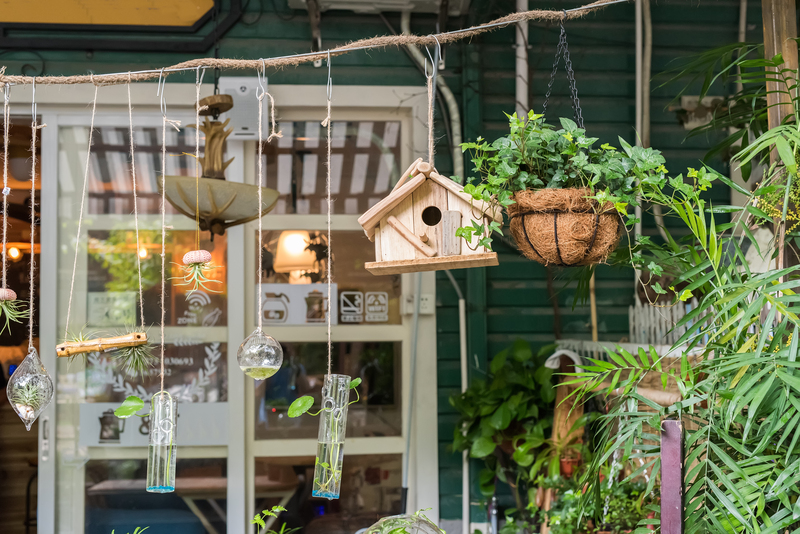The Path to an Organized Home Begins with Clutter Removal and Hoarder Clean Up
Is your living space feeling overwhelming and out of control? Have random piles of things taken over your rooms, making it hard to find peace and productivity? An organized home is more than just visually appealing--it's key to mental clarity, safety, and comfort. However, achieving organization often starts with one crucial step: clutter removal and hoarder clean-up.
Why Decluttering Is Fundamental to Achieving an Organized Home
The journey to a tidy and harmonious home begins with letting go of unnecessary belongings. Decluttering creates the foundation for efficient storage, improved cleaning, and optimized living. Without first addressing clutter, any attempts at organizing are likely to fail in the long run. Let's break down why clutter removal is step one on the path.
- Frees Up Physical Space: Piles of unused items crowd out usable areas in your home, limiting function and flow.
- Reduces Mental Stress: Physical clutter elevates anxiety and tension, negatively impacting focus and mood.
- Simplifies Cleaning: Less clutter makes daily cleaning tasks faster and more effective, keeping your space healthier.
- Promotes Safety: Excess items increase the risk of tripping, falling, and pest infestations.
- Encourages Productivity: A neat environment supports better habits, time management, and overall happiness.
Understanding the Impact of Hoarding on Organization
For some, clutter is mild--a few too many gadgets or clothing items. For others, it escalates to hoarding disorder: the persistent difficulty discarding possessions, regardless of their actual value. Hoarder clean up is a specialized process necessary for restoring safety and order in these cases. Tackling extreme clutter requires compassion, expertise, and often professional help.
- Structural Risks: Excessive accumulation can stress floors, block exits, and create fire hazards.
- Health Concerns: Mold, dust, and vermin are common in hoarded homes, leading to respiratory and other health risks.
- Social Isolation: Hoarding often leads to shame, secrecy, and withdrawal from friends and family.
- Legal and Financial Consequences: In severe cases, hoarding can result in eviction, property damage fines, or legal interventions.
Recognizing When Help is Needed: If clutter is endangering health or well-being--or hoarding behavior is present--seeking professional hoarder clean up services is vital. Such services facilitate safe removal, deep cleaning, and often connect clients with mental health resources.
Step-by-Step Guide to Clutter Removal and Organizing Your Home
Whether you're tackling minor disarray or helping a loved one with hoarding disorder, following a proven strategy makes the process more manageable. Here is a comprehensive plan to transform chaotic spaces into organized sanctuaries:
1. Assess Your Space
- Walk through every room. Make note of problem areas, high-traffic zones, and spaces rarely used.
- Identify items that are broken, unused, or taking up unnecessary space.
- Be honest with yourself about what adds value or joy, and what does not.
2. Set Realistic Goals and Prioritize
- Start small--focus on a single area, shelf, or drawer if extensive clutter feels overwhelming.
- Establish timelines for each zone to avoid burnout and boost motivation.
- Recruit friends or family if you need encouragement and support.
3. Gather Clutter Removal Supplies
- Sturdy garbage bags and boxes
- Gloves, dust masks, and cleaning products, especially for hoarder clean-up projects
- Labels and markers for sorting and categorizing
4. The Sorting Method: Keep, Donate, Toss, Sell
Work through clutter with a sorting system. For each item, ask yourself:
- Keep: Do I use it regularly and love it?
- Donate: Is it in good condition but no longer needed?
- Toss: Is it broken, expired, or worthless?
- Sell: Could this item be sold for extra income or to someone who will value it?
5. Dispose, Donate, or Recycle Responsibly
- Research local donation centers and recycling programs for electronics, clothing, and hazardous waste.
- Arrange for bulk waste pick-up if needed, especially in situations of significant clutter or hoarder clean up.
- Keep donation receipts for potential tax benefits.
6. Deep Clean and Sanitize
- Clean surfaces exposed by removed clutter--vacuum, mop, wipe down walls and shelves.
- Address odor, stains, and potential pest issues common after hoarder clean up.
7. Organize What Remains
- Invest in practical storage such as bins, shelves, and closet organizers to maximize space.
- Label containers for accessibility and maintainability.
- Arrange items by frequency of use--keep everyday essentials within easy reach.
8. Create Habits for Long-Term Organization
- Institute the "one in, one out" rule for new purchases to prevent clutter buildup.
- Schedule regular mini-decluttering sessions to maintain order.
- Encourage all members of the household to participate in organizing efforts.
The Benefits of Professional Clutter Removal and Hoarder Clean Up Services
While some homeowners can manage clutter independently, professional cleaning services specialize in tackling accumulated mess and restoring unlivable spaces. Here's how expert clutter and hoarder clean up teams can make a transformative difference:
- Experience and Efficiency: Trained crews work quickly, safely, and with systems to ensure thorough removal and deep cleaning.
- Compassion and Discretion: Professionals are sensitive to the emotional nature of hoarder clean ups and respect privacy.
- Proper Disposal: Experts handle hazardous waste, large debris, and donations responsibly according to local laws.
- Restoration: Many companies offer repairs, odor removal, and pest control to restore livability.
When to Call Professionals: If you encounter:
- Mold, water, or fire damage beneath clutter
- Rodent, bug, or biohazard risks
- Rooms or pathways completely blocked
- Overwhelming emotional stress or family conflicts
It's time to call a licensed clutter and hoarder clean up company to ensure safe, humane, and effective results.
Confronting the Emotional Challenges of Decluttering and Clean Up
Saying goodbye to personal belongings can trigger anxiety, sadness, or guilt--especially for those with a history of hoarding disorder. Overcoming these feelings is as important as the physical cleaning process.
- Practice Self-Compassion: Understand that needing help is normal. Celebrate progress, not perfection.
- Work with Support: Family, friends, or therapists can offer encouragement and accountability.
- Focus on Your Goals: Remember the benefits of a clean, organized home for your mental health, relationships, and lifestyle.
- Seek Therapy if Needed: Professional counseling supports those struggling with severe hoarding behavior or emotional trauma tied to possessions.


Frequently Asked Questions about Clutter Removal and Hoarder Clean Up
What is the difference between decluttering and hoarder clean up?
Decluttering generally refers to removing surplus or disorganized items from a home. Hoarder clean up is a specialized service focused on helping individuals with hoarding disorder remove massive accumulations, often including health hazards and requiring professional expertise.
How long does the cleaning process take?
The timeline varies depending on the extent of the clutter and the square footage involved. Small decluttering projects can be completed in a day, while large-scale hoarder clean ups may take several days or even weeks.
How do I maintain an organized home after decluttering?
- Adopt regular habits such as five-minute nightly cleanups and monthly donation runs.
- Involve everyone in the home to share responsibility for keeping spaces clutter-free.
- Be mindful about bringing new items into your space to avoid slipping back into old patterns.
What if my clutter is tied to emotional difficulties?
It's common to have emotional attachments to belongings--especially for those with hoarding tendencies. Consider working with a mental health professional. Support groups, individual counseling, and compassionate friends or family make the process more bearable and successful.
Can professional hoarder clean up help someone recover from hoarding?
While professional cleaning addresses the physical mess, recovery from hoarding disorder may require ongoing therapy and support. Cleaning is a key first step, but long-term progress depends on understanding and managing the underlying psychological causes.
Begin Your Journey to an Organized Home Today
In summary, clutter removal and hoarder clean up are the essential first steps to transforming your house into an organized, peaceful sanctuary. By tackling excess belongings and addressing emotional obstacles, you pave the way for a cleaner, safer, and more enjoyable living space.
- Start small and celebrate progress--you don't need to achieve perfection overnight.
- Don't hesitate to seek professional help for larger or especially difficult situations.
- Remember: Every item you let go of creates new space for organization, creativity, and tranquility in your home.
If you're ready to start down the path to an organized home, remember that real change starts with clutter removal. Take the first step today--and reclaim the comfort and order you deserve!
```